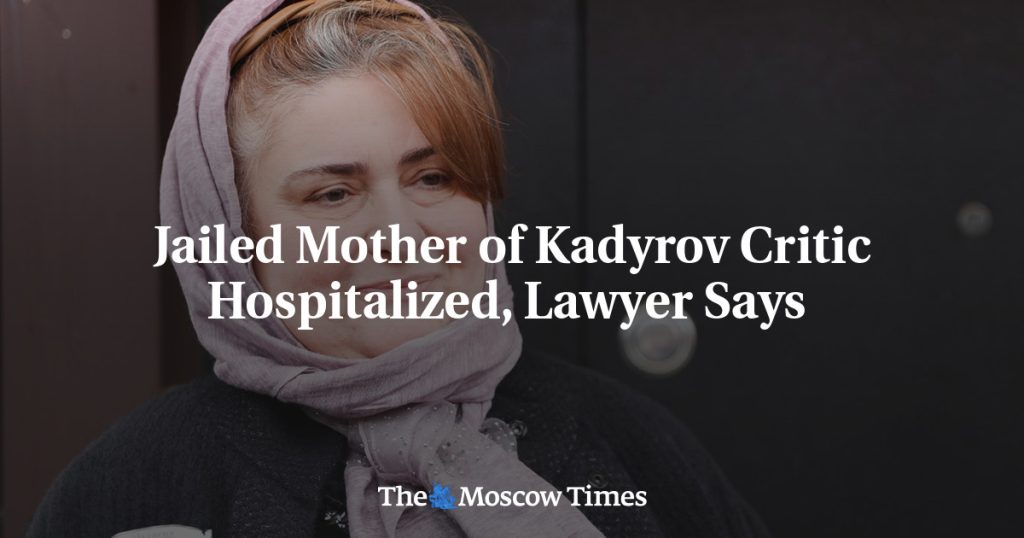Zarema Musaeva, the mother of activist Abubakar Yangulbaev and the wife of a retired federal judge, is currently serving a five-year prison sentence for fraud and assault on a police officer. Due to her declining health, her lawyer petitioned the authorities to allow her to receive medical treatment. Musaeva’s blood sugar levels were approaching a critical mark, and prison staff had requested her hospitalization, although there was initially no response. Eventually, Musaeva was sent to the hospital for treatment, and it is not yet known how long she will stay there. This situation highlights the challenges faced by individuals incarcerated in Russia, especially those who are in poor health.
The European Court of Human Rights previously ruled that Musaeva’s arrest was arbitrary and intended as retaliation against her family, who were involved in human rights work and opposition activities in Chechnya. The court found that the administrative proceedings against her were hurried, without legal representation, and breached fair trial guarantees. As a result, Russia was ordered to pay damages to Musaeva and her family for the injuries they suffered during her detention. This ruling underscores the importance of upholding human rights and ensuring that individuals are granted a fair trial, even in challenging political environments.
The human rights group Crew Against Torture reported that Musaeva’s lawyer was notified about her hospitalization after attending a parole hearing, where Musaeva did not appear. The parole hearing was rescheduled to November 12, indicating that her health issues may impact legal proceedings related to her case. This situation sheds light on the difficulties faced by political prisoners in Russia, particularly those who are targeted for their activism and opposition to government authorities. The lack of proper medical care for incarcerated individuals can further exacerbate their health conditions and violate their human rights.
The Moscow Times, an independent media organization, highlighted the challenges it faces as an “undesirable” organization according to Russia’s Prosecutor General’s Office. The Moscow Times is committed to providing accurate, unbiased reporting on Russia despite facing threats and attempts at silencing by the authorities. The importance of independent journalism in holding governments accountable and informing the public is crucial, especially in environments where freedom of the press is restricted. The support of readers and the public is essential in defending open, independent journalism and standing against repression and censorship.
Overall, Zarema Musaeva’s situation underscores the broader issue of human rights violations and challenges faced by political prisoners in Russia. The arbitrary arrests, lack of fair trial guarantees, and inadequate medical care for incarcerated individuals highlight the need for reform and accountability within the Russian justice system. International organizations and the public play a critical role in advocating for the protection of human rights, ensuring justice for those who have been wrongfully targeted, and supporting independent media outlets that strive to uphold transparency and accountability in society. The ongoing efforts to address these challenges are essential in promoting a free and democratic society where individuals can exercise their rights without fear of reprisal or censorship.


